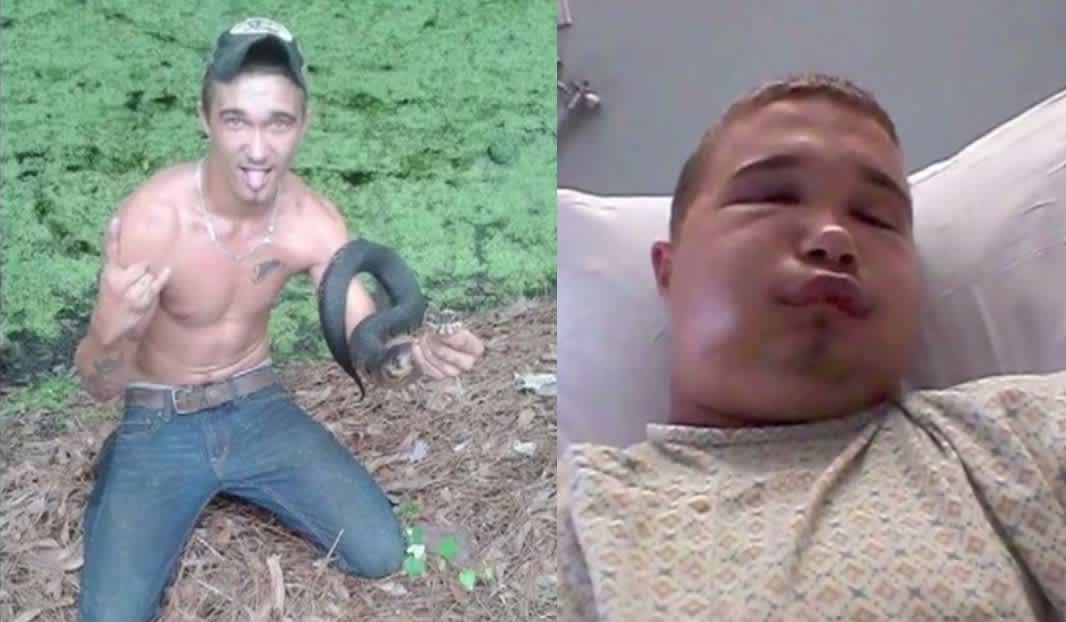Florida Man Tries to Kiss Cottonmouth Snake, Hospitalized after Bite
OutdoorHub Reporters 04.22.15

One Florida man learned the hard way that water moccasins do not make the best kissing partners. According to Fox 13, 18-year-old Austin Hatfield of Wimauma was hospitalized last Saturday after being bitten by a cottonmouth while attempting to kiss it.
Friends said that Hatfield had captured the snake from his girlfriend’s yard several days before and was keeping it in a pillowcase. Hatfield occasionally took the snake out to kiss it on the mouth, but on Saturday, the snake decided to end the relationship.
“He took it out, put it on his chest and it was acting funny, and it jumped up and got him,” said Jason Belcher, who witnessed the attack. “He ripped it off his face, threw it on the ground and he started swelling up immediately. It was pretty frightening.”
The 18-year-old was transported to Tampa General Hospital’s emergency room in critical condition, but doctors have since said that he is expected to recover. Although cottonmouth bites can be effectively treated with antivenom, the snake is still considered very dangerous and have been known to cause fatalities. Common symptoms of a cottonmouth bite include severe swelling, intense pain, and signs of shock due to the body’s reaction to the venom.
Officials from the Florida Fish and Wildlife Conservation Commission (FWC) said they are investigating the case and have euthanized the snake that is believed to have bitten Hatfield. According to FWC spokesperson Gary Morse, Hatfield could face charges for illegally capturing and keeping the cottonmouth without a permit. Cottonmouths, also known as mangrove rattlers or worm-tailed pitvipers, are considered dangerous animals and Morse said that those who come across them should keep their distance.
“It really doesn’t want to eat you, but it will protect itself,” Morse told The Tampa Tribune. “Cottonmouths have a reputation of being somewhat skittish when you get near them and they will readily defend themselves.”
You can watch a brief interview with Florida Poison Information Center expert Alfred Aleguas below.
Can You Eat a Snake as Survival Food? Yes, click here to find out how.

